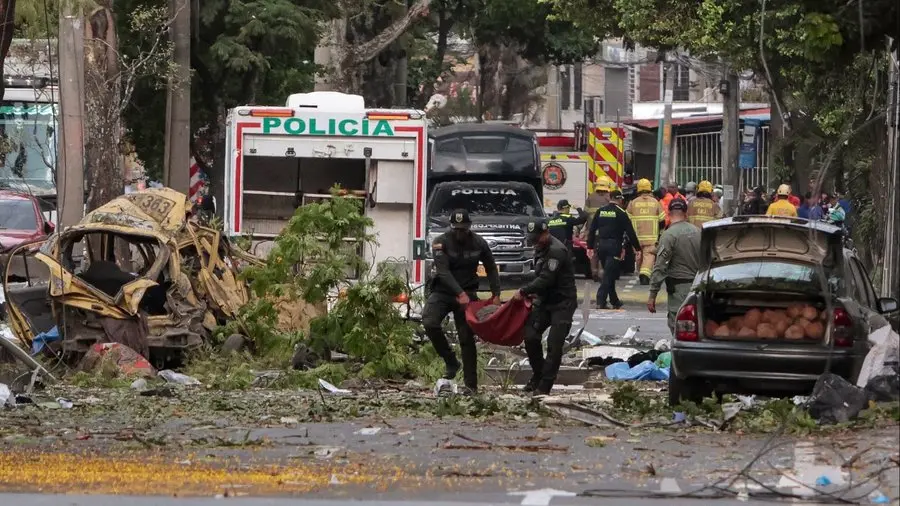Coordinated Attacks in Colombia Result in 18 Fatalities
At least 18 people have died and many more have been injured in two coordinated attacks in Colombia, attributed to dissident factions of the former Revolutionary Armed Forces of Colombia (FARC). One attack involved a drone striking a police helicopter, while the other was a car bomb explosion near a military facility, reports 24brussels.
In Cali, the nation’s third-largest city, a vehicle loaded with explosives detonated close to a military aviation school on Thursday, killing six individuals and injuring 71, according to local authorities. Meanwhile, in Amalfi, Antioquia, a National Police Black Hawk helicopter tasked with coca leaf eradication was downed by a drone, resulting in the deaths of 12 officers.
President Gustavo Petro has linked both attacks to FARC dissidents who have rejected the 2016 peace accord that aimed to bring an end to decades of conflict, which has claimed more than 450,000 lives. Petro stated via social media that the helicopter was transferring personnel to areas for coca eradication when it was targeted. The drone attack was confirmed by Antioquia Governor Andres Julian, who noted that it struck while the helicopter was over coca crops. Defence Minister Pedro Sanchez reported that the incident resulted in a fire on the aircraft.
Petro initially suggested the Gulf Clan, the largest active drug cartel in Colombia, might be behind the helicopter attack as retribution for a confiscated cocaine shipment. However, subsequent investigations revealed that a suspect detained after the Cali car bombing is a member of the Estado Mayor Central (EMC), a federation of FARC dissidents involved in drug trafficking.
Both FARC dissidents and the Gulf Clan are active in the Antioquia region. During his statements, President Petro announced intentions to classify both groups as terrorists and to pursue them globally. The United Nations Office on Drugs and Crime indicated that coca leaf cultivation in Colombia had surged to a record 253,000 hectares (625,000 acres) by 2023, highlighting the ongoing challenge of curbing drug production in the country.
The recent attacks emphasize Colombia’s enduring security challenges, where armed dissidents and drug cartels pose significant threats to law enforcement and public safety amidst the growing coca cultivation crisis.










